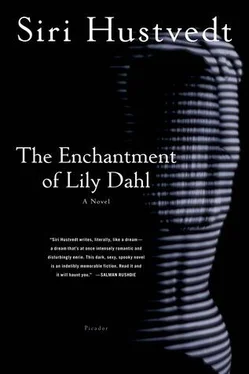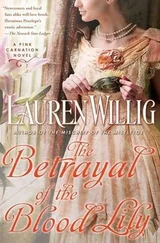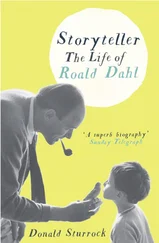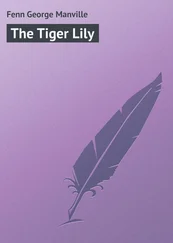“Hal Dilly,” she repeated. “There’s a Dilly family in Webster, but no Hal. They run the old people’s home. Did he stutter?”
“No, but one morning around ten last week, Wednesday, I think, this kid knocked on my door and asked me if I would show him the paintings, said his name was Hal Dilly, that he wanted to study art.”
“What did he say?”
“Not much, but he studied all the paintings very carefully, and then afterward, he kept looking around the room like he was expecting to find something else.” Ed rubbed his forehead. “He asked me if there weren’t more. I said no, and he left.” Ed paused. “Mabel isn’t sure about what she saw. She said it was so fast, just a couple of seconds, that she couldn’t be sure…”
“I saw her,” Lily whispered.
“I know.” He frowned. “While he was here, I didn’t think about it very much, but after he was gone, I had a funny feeling that something wasn’t right, that he was making fun of me, laughing up his sleeve, but then I told myself I was being paranoid.” Ed sat down and looked at his painting. His large eyes were wide open and still. “Don’t go near him,” Ed said, without looking at her. Then he looked up at her, reached out, clutched her arm and kissed it.
A few minutes later, Lily walked out the door and did exactly what Ed had warned her not to do. She headed out of town on her bicycle.
* * *
Heath Creek changed in daylight. As Lily walked along the bank through the brush where Martin had walked only hours before, she found it odd that she could see what was around her. Her eyes felt sore, and the steadily darkening sky caused a turbid gloom over the trees and water, muting their colors to grays and browns. Somewhere above her on the other side of the creek she heard children playing, and Lily wondered why children always sound the same when they play, that it didn’t seem to matter who they were or where they lived. She walked on, stepping quickly through the underbrush along the curve in the creek. As she neared the cave, she stumbled over an old sign from the Sheriff’s Department, its warning rusted into illegibility, and as she looked down at it, she heard the children above her chanting. She couldn’t hear what they were saying, but their rhyming verses were ridiculing somebody, and she listened to their cruelty with a mysterious pang of guilt. Lily crouched in front of the boarded, nailed entrance to the cave.
She saw the little door right away. Someone had cut it out of the boards. It had real hinges and was standing ajar, as if the dwarf who lived inside was expecting visitors. She opened the door further and was met by the moist, cool air of the cave. Before she crawled inside, she shone her flashlight into the first low, wide room near the entrance. She remembered it. There was no sign that anyone had been in here for a long time. From that first room, you could crawl through a passageway to another. Nobody she knew had ever ventured beyond the second one, but that room was larger — an adult could stand up in it. She shone her light toward it, then turned it off. Another light shone from the second room. After stuffing the flashlight into her back pocket, Lily began to crawl through the passage. She heard the steady trickle of water coming from somewhere nearby. The damp cave floor made her knees raw, and her shoulders grazed the sides of the tunnel. When she had almost reached the turn where the passage opened onto the second room, she heard someone begin to whistle the only song from the only opera Lily had ever been able to name, and that melody was so strongly identified with Ed, meant Ed and no one else, that for several seconds Lily didn’t accept that she was hearing it. The cave walls distorted the sound. Its origin could have been anywhere. She froze and held her breath. The noise was like the door — sensual information she resisted. But Lily knew that she was going to lurch headlong into whatever was waiting for her, and an instant later she pushed herself around the turn in the passage and saw Martin sitting there beside a small kerosene lamp that was flickering in some inexplicable draft. The room was filled with objects, piles of material, cardboard boxes, spools of thread, paints, but Lily didn’t examine them closely. Martin had stopped whistling, but he didn’t seem to see her. He wasn’t moving, but his huge shadow on the cave wall trembled and leapt. He kept his eyes on the ground for a couple of seconds, then looked up at her and said, “I knew you’d come, Lily.”
“What have you done with her?” Lily whispered at him.
Martin narrowed his eyes and turned his head. Lily inched forward into the room to see what Martin was looking at. Against the far wall of the cave, slumped in a wheelchair was the girl Lily had seen the night before.
Lily cried out and clapped her hands over her mouth. She started crawling for the passageway, but she felt Martin’s hands on her shoulders. He pulled her toward him, his grip much stronger than she had expected. She fought him hard, but Martin dragged her across the floor of the cave toward the body. Lily closed her eyes. She hit and wept, and then she felt Martin stop suddenly. He was behind her, holding her arms tightly. She kicked him. “L-l-look,” he said. “L-look.”
“No!”
“Look!” Martin let go of Lily. She opened her eyes and looked at the girl in the wheelchair. She recognized the chair as the one Martin had bought from Frank and Dick. Martin had his hands on either side of the girl’s face, and Lily saw that this was the face of a doll, a beautifully made life-size doll whose proportions, unlike most dolls, were accurately human. And that it was a girl, not a woman, with a small only half-developed body.
“It’s a doll,” Lily said.
Martin nodded. “B-but you knew.”
“It’s a doll.” Lily stared at the modeled face with its painted eyes and parted lips, its long, dark hair that fell over its shoulders. My costume, she thought. It’s wearing Hermia’s dress. And while she looked, she saw — all at once — that the thing looked like her or maybe like her a few years ago. Nobody’s dead, she thought. Nobody’s dead, and she felt a vibration in her jaw and in her temples. She didn’t speak. Neither did Martin. She looked at the doll. There was something wrong with it, but she couldn’t say what it was. It’s cold in here, she said to herself. My mouth is dry. She moved her tongue back and forth in her mouth and then she said, “Where did you get it?”
“I–I-I,” he said, “m-m-made y-you. It t-t-took a long time — a y-y-ear.”
“What?” Lily said. She looked at Martin. Why is he stuttering now? she wondered. I’m dizzy. She took a step backward. Then she tried to focus on Martin. “I thought you had killed somebody, Martin. You showed me that picture. You said she wasn’t alive. Last night…” Lily felt confused. The moving light didn’t help. There’s something wrong with my eyes, she thought. “What have you done?” Lily looked at the doll again. “What is it?”
“H-her face, arms and legs are made from Sculpey — i-it’s pretty new stuff…”
Lily hadn’t meant for him to explain how he’d made it. “No,” she said, but he continued his explanation.
“I-it’s like clay, but you can f-fire it at home in the oven.”
Lily imagined Martin removing the doll’s head from his oven, then an arm. She put her hand to her forehead. “You didn’t ask me. You, you’ve done this behind my back. You were whistling.… That’s Ed’s song.” Lily shook her head and showed Martin her palms, as if they could ward him off. “You’ve been spying on me for, for a long time. I’ve, I’ve heard you sneaking around.” She looked up at him. He seemed taller in the cave. “Why?” Lily stepped backward and heard plastic rustle under her feet. The air inside the cave was hurting her lungs.
Читать дальше












